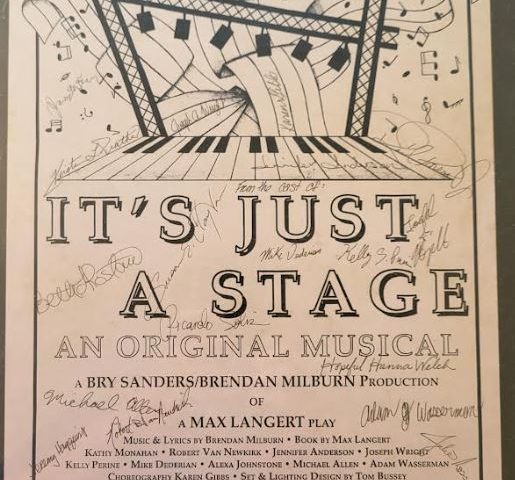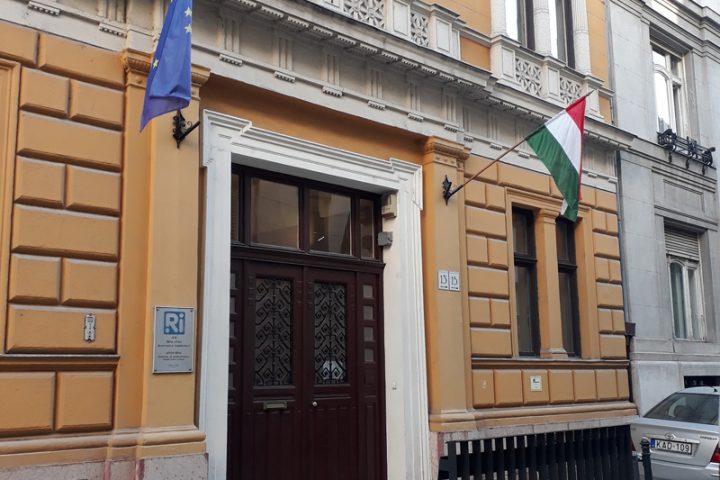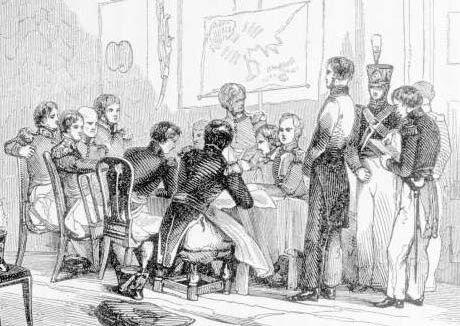I first heard about the Listen to Your Mother (LTYM) project back in late February of this year when I spotted a call for submissions on a theater website I usually read for reviews and notes on upcoming productions.
Always on the lookout for local events to participate in, I read over the requirements and production details and thought it looked like a really quality event I wanted to be a part of.
Except for one thing. There was all this talk of mothers and women and “giving motherhood a microphone.” Would they really be interested in hearing from me? I am neither a mother nor a woman (last time I checked); would this disqualify me?
So I spent another 15 minutes reading and re-reading the requirements, looking for anything that would explicitly spell out the fact that they wanted to hear from women only. As someone who regularly scours playwriting opportunities, I’m used to requirements like these being added right at the bottom of an otherwise-enticing listing (“must be a resident of Washington State,” “must be a currently-enrolled student,” “must have no outstanding library fines”).
But I didn’t see anything of that sort on this announcement. And in fact, I remember seeing the words “everyone has a mother story” on there too. I had to think about this for a second, but it’s true! Everyone comes from a mother (thanks, Dalai Lama)! There’s nothing more universal!
So I spent the next week before the deadline writing a short personal essay about motherhood and family. And then just figured I’d wait and see what happened.
When I was asked to come in and audition a week later, I was ecstatic.
And when I was asked to join the cast a week after that, I practically did a cartwheel (I’ve never actually been able to do a cartwheel).
Then I got nervous, because the word “cast” always makes me think of things like this and this and this.
And then something happened that really freaked me out. We had our first table read and I completely lost it. Couldn’t hold my emotions in check at all and barely got through my story without soaking the pages all the way through.
I’ve been trying to think about why this was so difficult for me, and I imagine it’s because there were more than a dozen of us reading stories to each other that were so honest and real, and everyone was just so damn vulnerable.
I’ve never had such a tough time reading something of mine out loud before. I mean I was really worried about this (I’ve been cultivating my steely shield of outward stoicism for decades, people!).
The last time I broke down like this was back in second grade when I was running a fever at school and had to get on the phone with my mother to ask if she’d come pick me up early from the nurse’s office (hmm…).
Anyway, Liz McGuire, one of the show’s producers, gave me a suggestion later that I should really try to “honor the story.” It took me a while to understand what she meant by this exactly. But ultimately I think this was the best advice I could get. I took it to mean: “Your story is powerful on its own; read it so that people can understand it; so that they can take it in; this isn’t about you, it’s about the story!”
In other words, if I’m up there blathering away, the story could get lost in the noise. There’s emotionality in it; and that can be conveyed, but the story itself is the most important thing.
Once I moved past that obstacle, I spent not inconsiderable time thinking about what I would wear to the Big Event itself. I mean it was really difficult for me because I only have two decent shirts! Which one to choose???
Fortunately, the choice was made for me when we were told by the producers that white fabric would “wash out our color” and stripes would “look blurry on YouTube.”
Phew, thanks for the advice, y’all. (YouTube???)
But of course then I began to worry that I’d sweat profusely on stage (or while waiting in anxious anticipation to go on stage) and that this solid non-white shirt of mine would not contend well with wetness.
Anyway, I somehow made it through, the readings went really well, the audience was fantastic and supportive, and I was even singled out and given flowers by a strange man afterward (okay, we all got flowers) (and okay, it was Liz’s husband).
Then I topped it all off with a couple of drinks in the courtyard where one of the other participant’s mothers offered to give me her phone number (I’m still waiting to hear from her, Lauren!).
All in all, a rich and rewarding evening. I’ve been to different playwriting events over the years where a group of writers comes together to celebrate and discuss their work. It’s almost always a great community of similarly motivated people with lots to talk about.
The LTYM event felt like that but even more so. Why is that? It didn’t just feel like a one-time get-together of like-minded folks. It felt like a club. Like a fraternity (sorority?) of some kind. Is it because all the participants are family-focused in one way or another? Is it because they’re not the beer-and-wine-swilling cynics I usually meet at writer conferences (oh wait, that can’t be it).
I think it must be that we were all focused on a common cause, that we all pitched in and were invested in the event’s success and worked collaboratively to get the message out. And our stories all had a through-line of truth and humor and vulnerability and family struggle.
Whatever made that magic happen, I’m so glad I didn’t shrug off that initial call for entries.
I’m so proud to be a member of this club.


